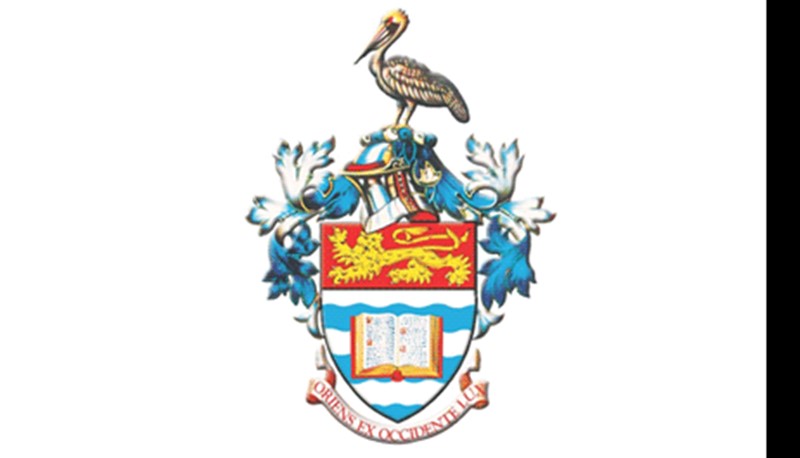
Two PhD Candidates from The University of the West Indies (The UWI) are among the COP26 Commonwealth Futures Climate Rising Star Researchers for 2021.
Ms Marium Alleyne, a student from the Department of Science and Technology at the Cave Hill Campus and Ms Tracy-Ann Hyman, a student from the Institute for Sustainable Development (ISD) at the Mona Campus are overjoyed to be selected in the exclusive cohort of 26 young researchers to take local knowledge to a global stage in the lead-up to the 26th United Nations Climate Change Conference (COP26) this November in Scotland.
Alleyne who is pursuing a PhD in Environmental Studies says, “There are many young career researchers who would love to be part of this experience. Being a part of the cohort will facilitate capacity
PhD candidate in Environmental Management, Hyman was equally jubilant “This experience will help to groom me further in the area of Climate Change Negotiations and ...develop skills to bridge the gap between scientists and policy makers especially in disaster management and adaptation, not only at the local level, but regionally and globally.”
Ms Hyman whose research interest is modelling flooding pointed out “I have personally experienced natural hazards/disasters first-hand, (hurricanes, floods and earthquakes) and seen the devastating impacts on human beings and communities across the Caribbean and the globe. In many instances, the level of devastation is due to poor planning or preparedness on the part of residents and local councils, so this led me to work specifically in the area of disaster mitigation.
Ms Alleyne whose research interest is modelling climate change vulnerability and adaptive capacity for Small Island Developing States (SIDS) noted, “… Climate change is a high consequence issue for Small Island Developing States (SIDS) due to its proportional impact. While climate change is expected to aggravate environmental and socioeconomic conditions, SIDS possess inherent characteristics which make them highly vulnerable to climate change. Vulnerability is a critical framework used to delineate the extent of climate change”. She further added, “A comprehensive understanding of the vulnerability of Caribbean SIDS specific to climate change will become a fundamental factor in ensuring sustainability and viability, as it provides the foundation for the identification of the optimum restorative action.
Ms Alleyne pointed to becoming “a vanguard of pioneering solutions with respect to climate change in SIDS and provide long-term professional support to help craft plans to address climate change and sustainable development issues. The resultant output from my research will contribute to the development of proficient scientific robust methods in modelling climate vulnerability and adaptive capacity of SIDS and ultimately serve as a wide-ranging tool which could provide information to policy holders, technocrats and even the average interested enthusiast. It will also help to strengthen scientific communication for SIDS, which is of paramount importance within the decision-making context”.
Ms Hyman noted “Most times when a disaster strikes, it takes some time for the authorities to arrive to conduct their search and rescue efforts. In most cases, it is residents themselves who perform such risky operations. When persons within communities are made aware of their level of risk and vulnerability and are also trained in how to respond, then the impacts on loss of life and damage would be less. This has and continues to be my driving force in terms of stressing the importance of disaster mitigation at the community level, to best mitigate against the deleterious effects of hazards”.
According to the ACU, “the cohort represents researchers with expertise in a range of disciplines, who have a deep understanding of communities disproportionately impacted by climate change”. The cohort of researchers will (1) attend a series of expert-led workshops and also design and deliver peer-led research-to-action project; (2) be mentored by senior academics and experts in the sector and (3) further their engagement with global climate stakeholders by attending the landmark 26th UN Climate Change Conference of the Parties (COP26 Summit) in Glasgow. The COP26 summit seeks to bring together parties that will accelerate actions towards the UN Framework Convention on Climate Change, which includes the Paris Agreement (signed in 2016 on climate change mitigation, adaptation and finance).
Also named among the cohort mentors is Jeremy Collymore, Consultant in Disaster Resilience at The UWI and Co-Convener of the Commonwealth Climate Resilience Network.
The University of the West Indies is at the forefront in resilience building activities in its institutions and within communities across the Caribbean and the world. It is a global leader in initiating and mobilizing research-led solutions for a climate smart world. Three of its lecturers were members of the Intergovernmental Panel on Climate Change which won the 2007 Nobel Peace Prize with former U.S Vice President Al Gore. The panel assessed the scientific, technical and socio-economic potential effects of climate change and options for adaptation.


